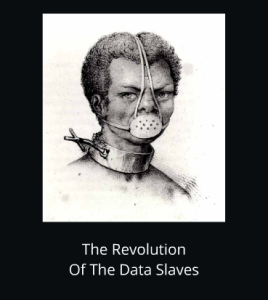Well there’s not any characters I identify with who look like me (my sister says it’s Huey on Boondocks, but that’s a cartoon). Let’s just say I’d like to make all business associates, family members and every potential suitor sit through marathons of Bones, Criminal Minds and Big Bang Theory… With the following instructions:
Please write a one page summary of each of my three favorite characters. Explain what you do and don’t like about each one and if you think you could work well with them. What is special about them and what is annoying? Why? How would you handle each scenario you find annoying? What would you add to or do to help enrich their lives, make them feel comfortable and help them succeed?
This would be a fun exercise… But in reality, these characteristics look very different on a black female and are not at all received well by black men (not that I limit myself, I think all peoples are beautiful, but that is my culture and experience). I might be in trouble with some folks merely for having the audacity to say I identify only with three white characters who hold multiple PhD’s. But they may not know, I will have my first one soon and I’ve always lived in diverse areas (and by diverse I mean I was often the only Afro-American).
This is where our similarities split; the upbringing of a brown skinned female with these traits is not one that people celebrate, encourage or ever think will amount to anything. No one tested me for genius and I only found out that I am high on the spectrum for Apergers at the age of 42. I’ve been to 6 colleges and every one led to financial troubles, including the one I attended while working full time as a Bank Manager, and graduated from, Magna Cume Laude.
Now that I have been officially diagnosed (I’ve known since I knew what Asperger was), I function even better… But the hard times, bullying, criticism, and lack of understanding hurts worse. I never expected anyone to care before. Now it’s like there’s some false sense of special needs consideration, which really only applies to people who are disfigured or visibly disabled, that everyone says exists but really doesn’t… Unless you want to walk around looking pitiful and reminding people evrytime they trample all over your personal space, quiet time, privacy and even basic human rights.
How do you feel about these characters? Would you see Bones the same if she wasn’t white? Would Sheldon be as popular if he were female. Would Reid be as adorable if he were a brown skinned woman with untamed, natural, curly hair?
If these folks weren’t PhD’s do you think they would be able to get hired and maintain a career? Would they function well in corporate 9-5, manual labor, in a box, not using their gifts or just taking orders?
Next time you have a conflict with someone who reminds you of one of these characters, consider how high their IQ is, how hard they are trying to make you feel comfortable and that they really can’t help your perceived lack of social etiquette.
[Character Info from Wikipedia.com]
Dr. Temperance Brennan

Throughout the course of the series, Brennan is portrayed as a straightforward, brilliant anthropologist, who lacks social skills. Her social ineptitude is especially apparent when it comes to sarcasm, metaphors which she often interprets literally, and pop culture jokes and is often the source of comedy in the show. An example of this is when she mistakes Colin Farrell for Will Ferrell.
Dr. Spencer Reid

As is characteristic of people with Asperger’s Syndrome, Reid is socially awkward. He often fixates on things (prompting Morgan and other team members to have to tell him to be quiet), and misses social cues at times (for example, unknowingly changing the subject of a conversation). The Unknown Subject (“UnSub”) in “Broken Mirror” noted this, and Gubler stated in an interview in the show’s second season “[Reid]’s an eccentric genius, with hints of schizophrenia and minor autism, Asperger’s Syndrome. Reid is 30 years old with three Ph.D.s and one can not usually achieve that without some form of autism.” Writer Sharon Lee Watson stated in a twitter chat Reid’s Asperger traits makes the character more lovable.
Dr. Sheldon Cooper

Sheldon is a theoretical physicist at Caltech who shares an apartment with his colleague and best friend, Leonard Hofstadter (Johnny Galecki). He is a former child prodigy with genius level IQ, but displays an almost total lack of social skills, a tenuous understanding of humor, and difficulty recognizing irony and sarcasm in other people, although he himself often employs them. He exhibits highly idiosyncratic and narcissistic behavior and a general lack of humility or empathy. These characteristics provide the majority of the humor involving him, which has caused him to be described as the show’s breakout character.Despite speculation that Sheldon’s personality traits may be consistent with Asperger syndrome, obsessive–compulsive personality disorder and asexuality, co-creator Bill Prady has repeatedly stated that Sheldon’s character was neither conceived nor developed with regard to any of these traits.
Huey Freeman

Let’s discuss it… http://xeeme.com/AndréaRaquel






